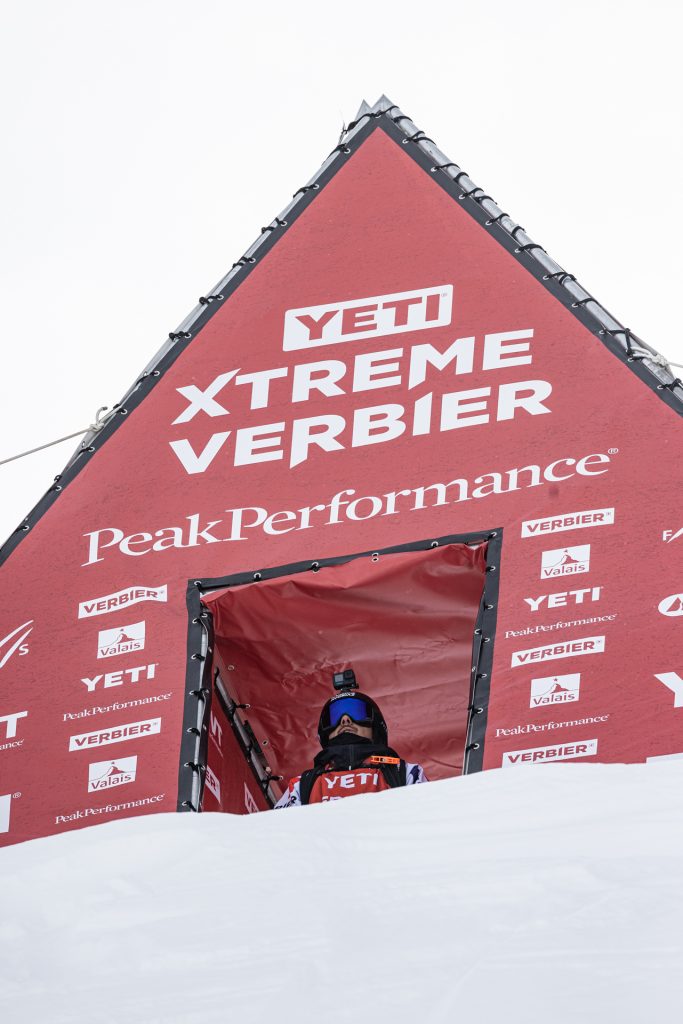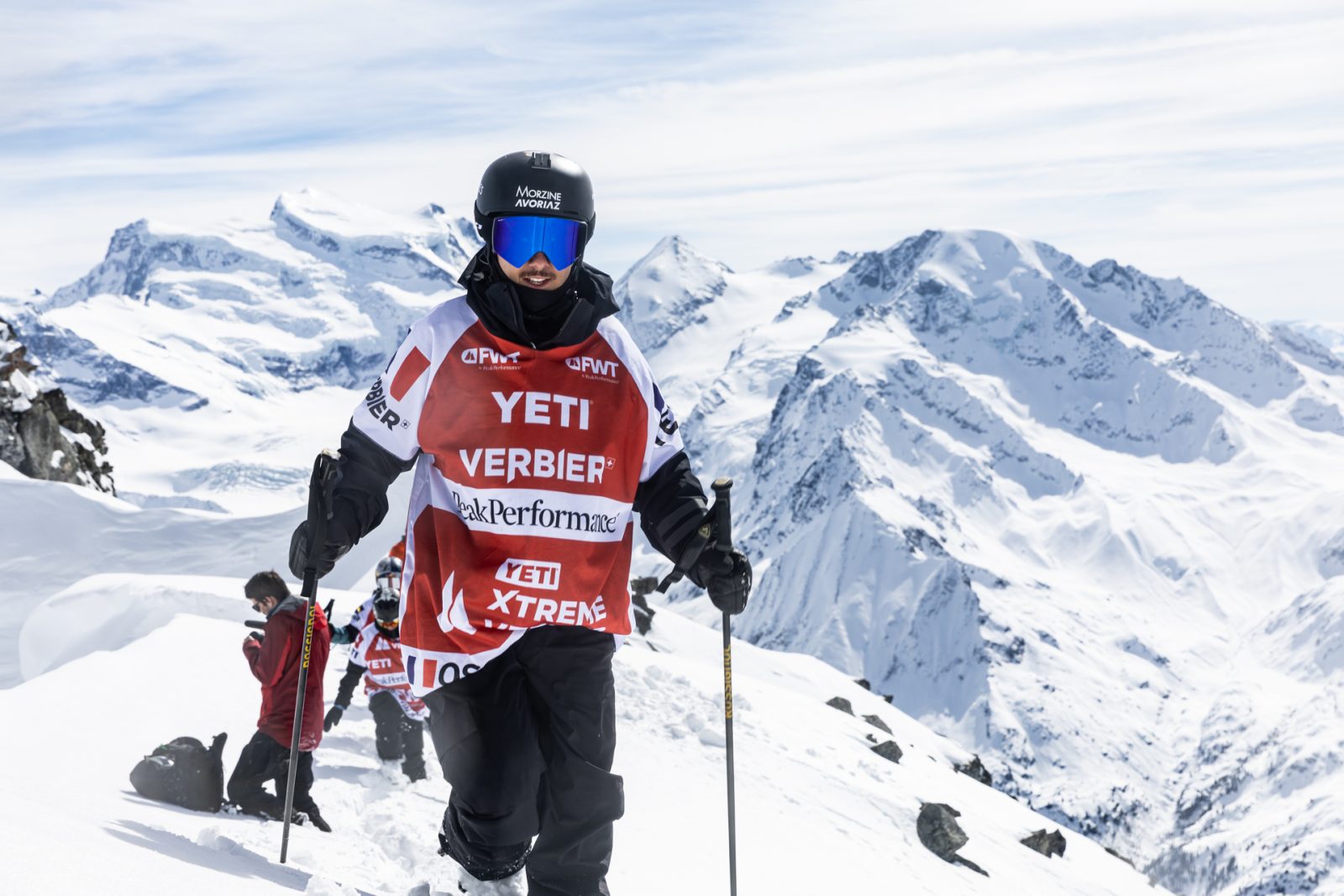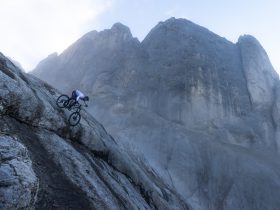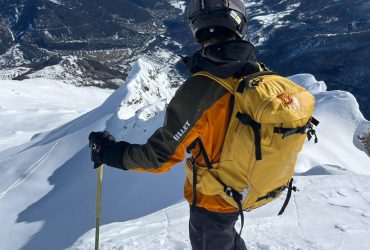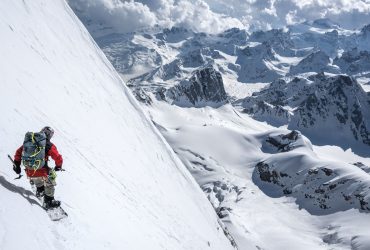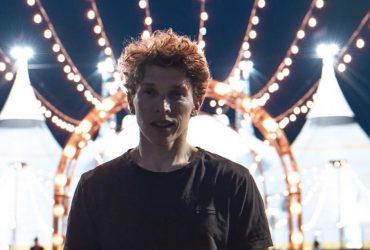Oscar Mandin, who finished fourth at the Xtreme de Verbier, the world's leading freeride competition held on the famous Bec des Rosses face, talks to We Rock Sport about this season finale and his life as a pro rider on the Freeride World Tour.
For the first time in six years, theXtreme of Verbier was launched this season from the summit of Bec des Rosses. This face, which rises to an altitude of 3,223 meters in the Swiss Alps, is a myth for freeride skiers and snowboarders. It's a 600-meter-high monster on which even the best of the best experience that feeling of vertigo when they're at the top, ready to hurtle down these slopes that reach 50 degrees of inclination on the steepest sections. Among this year's riders, France's Oscar Mandin produced one of the finest runs of this year's event, held on March 22. The 26-year-old started first in this Freeride World Tour final and managed to land two backflips after a perfectly negotiated first part of the run on the steepest part of the face. The Morzine-Avoriaz rider talks about his first time on the Bec des Rosses.
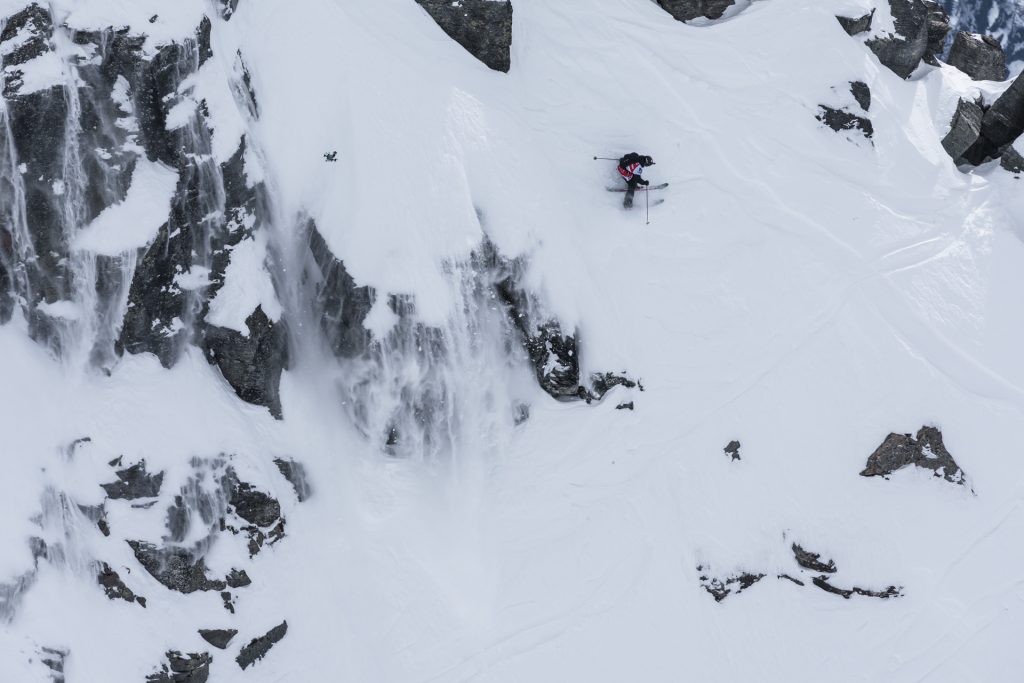
Oscar, is this mountain as impressive to ride as its legend suggests?
This Bec des Rosses is really something. Two days before the competition, all the skiers and snowboarders were heliported to the summit. Of the 11 skiers competing in this final, none had ever competed from the summit. The organizers wanted to make sure there was enough time to get the best possible scouting on this face. At the top, the first sensation is of emptiness, because it's so steep. Clearly, it's scary. On other faces, it's more your line and tricks that create the risk. Here, there's no room for error, and the gradient is insane. The aim is above all to avoid a fall that you wouldn't be able to stop with your inertia, because it's so steep.
How did you choose your line?
After studying the mountain for a long time and looking at it through binoculars, I chose my line and spoke to my coach Seb Michaud, who is a former pro skier who also competed on the Freeride World Tour in the 2000s and 2010s. He knows this face very well, having already ridden it (editor's note: he won the Verbier Xtreme in 2005). So when someone like him gives you the green light for the line you've chosen, it's bound to give you confidence. In the end, I went to the right as you look down on the Bec des Rosse. In particular, I jumped a cliff called "La De le Rue", which was opened by snowboarder Xavier in 2010. Until now, it had only been jumped once by a skier. My aim was to use the mountain as much as possible, choosing a very steep and technical section at the top and a more freestyle section at the bottom with my two backflips. In the end, I finished fourth. A chocolate medal always means a bit of disappointment, but I'm proud of the skiing I showed. I went into a steep zone where I'm not necessarily used to skiing, as I'm seen more as a freestyle rider. Overall, I'm eighth, with a year in which I succeeded in my backflips and jumped bigger, but I lacked the consistency to aim higher.
How are you supervised throughout the season?
In addition to my coach who is with me on the races, I have a mental trainer, a physical trainer and an osteopath who follows me in winter. Athletes on the world circuit pretty much all have this type of structure. It's a sport that's becoming more and more professional, particularly as it has ambitions to go to the 2030 Olympics.
And how do you train as a freeride rider?
I already do a lot of physical training, spending days in the gym, rather like the alpine skiers. We start skiing a little later than them at the beginning of the season, but as soon as the big snowfalls arrive, we're outside. We look at where the rocky bars are, and try to push each other along with the other riders we go skiing with. This year, I did a lot of training in Verbier in January. Some of my Freeride World Tour buddies were there, so they showed me around and I was able to ride some spots I didn't know so well. It's always useful to look elsewhere to keep improving. I'm from Morzine-Avoriaz, I was born there and I obviously continue to ski my local spots, especially as the location lends itself well to it. Last month, Avoriaz hosted a stage of the FWT Challenger, which enables riders to qualify for the Freeride World Tour.
As well as skiing, you also enjoy mountain biking.
I do a bit of road biking and a lot of enduro actually. I have the advantage of having a sponsor (Rossignol) who makes skis and bikes, so it's ideal for me. It's my second passion. Mountain biking is going to be more recreational, but it's a great way to get my body into gear, especially on climbs. Two years ago, I took part in two stages of the Enduro World Series. It was great, but it requires so much training, preparation and commitment that it was a bit too risky for me, so I eased up on mountain bike competitions.
Do you already have plans for your post-career?
I have a Master's degree in Finance from HEC Lausanne. My mom always told me that I should have a safety mattress if things didn't work out in skiing. I'm not sure I'll ever go back into finance, but I should manage to get back on my feet, in the ski industry or elsewhere, we'll see. For the time being, I'm fully focused on racing and my career.
